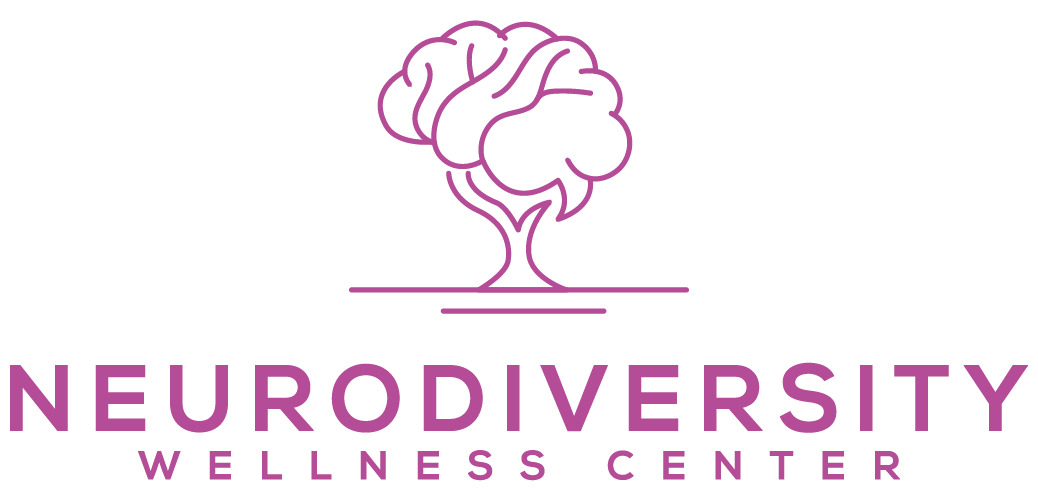Understanding the Intersection of Autism and Trauma
Trauma and PTSD rates in the autistic community are alarmingly high, yet often overlooked by the mental health field. I felt it was essential to highlight the link between autism and trauma to raise awareness and improve support for neurodivergent clients.
There is a strong correlation between autism and trauma. Research indicates that autistic people are 8X more likely to score in the probable PTSD range than non-autistic people (Haruvi-Lamdan et al., 2020). According to Hume and Burgess (2021), autistic individuals are not only more likely to experience trauma, but more vulnerable to developing PTSD and less likely to receive a diagnosis of PTSD than non-autistic individuals. In a research review, Dodds (2020) found that, “Trauma has cumulative, lifelong, and intergenerational impacts on autistic people and their families.” As a survival strategy to cope with the cumulative and lifelong effects of trauma, many autistic people turn to masking.
What is Masking and How Does It Relate to Autism and Trauma?
 Masking and camouflaging refer to the strategies used by neurodivergent people, especially autistic individuals, to hide or minimize their autistic traits in order to fit in with neurotypical expectations. For example, forcing oneself to smile or make eye contact to conform to social norms, even when it feels unnatural, is a common form of masking. For many autistic individuals, masking can feel like a necessary way to protect themselves from further social trauma, such as from misunderstandings, invalidation, bullying, or betrayal. While masking can sometimes help an autistic person succeed in various aspects of life—such as securing a job or superficial interations—it also has significant drawbacks.
Masking and camouflaging refer to the strategies used by neurodivergent people, especially autistic individuals, to hide or minimize their autistic traits in order to fit in with neurotypical expectations. For example, forcing oneself to smile or make eye contact to conform to social norms, even when it feels unnatural, is a common form of masking. For many autistic individuals, masking can feel like a necessary way to protect themselves from further social trauma, such as from misunderstandings, invalidation, bullying, or betrayal. While masking can sometimes help an autistic person succeed in various aspects of life—such as securing a job or superficial interations—it also has significant drawbacks.
Based on research from Evans and colleagues (2024), higher self-reported autistic masking behaviors were associated with higher reports of:
- past interpersonal trauma
- greater anxiety and depression symptoms
- lower self-esteem
- lower authenticity
- lower participation within the autistic community
Constantly concealing one’s true self can lead to increased stress, imposter syndrome, and exhaustion among other problems. For those with a history of trauma, the act of masking may exacerbate feelings of disconnect and contribute to mental health struggles, such as PTSD. In summary, while masking might offer short-term benefits in fitting into neurotypical environments, it can have long-term negative effects on well-being and authenticity. Understanding and addressing the impact of masking is crucial for supporting autistic individuals, especially those who have faced trauma.
The Impact of Trauma on Autistic Masking
The need to mask autistic traits can often be traced back to past trauma and rejection. When an autistic person faces negative experiences or discrimination for expressing their true self, they may feel compelled to hide their neurodivergent traits in order to fit in or avoid further harm and trauma. This pattern of masking can become a survival mechanism, but it can also lead to significant emotional challenges. Constantly hiding who you are to fit into various social settings can erode your self-worth and lead to ongoing self-doubt.
The pressure to determine whether it’s safe to be yourself can be exhausting and anxiety-inducing. This hypervigilance can create substantial stress, particularly in social situations, and may exacerbate feelings of alienation and loneliness. For those struggling with social anxiety, avoiding social interactions altogether might seem like the easiest solution. However, this avoidance can further contribute to feelings of isolation and loneliness, making the cycle of masking and self-doubt even more challenging to break.
Masking and Its Emotional Toll:
Anxiety, Depression, and Loneliness
 Years of masking your autistic traits can lead to deep feelings of inadequacy and isolation. It may feel as though you’re an outsider navigating a world that often seems unpredictable and confusing. This sense of alienation can itself be a form of trauma, as daily interactions may feel like a battle against a hostile environment that is not neuro-inclusive. The constant effort to conceal your true self can contribute to significant anxiety, depression, and loneliness. Each day can feel like a high-stakes challenge, where you face not only the risk of being misunderstood or mistreated but also the emotional strain of constantly assessing whether you will be respected or rejected. This ongoing emotional strain can make it difficult to maintain a sense of self-worth and connection with others.
Years of masking your autistic traits can lead to deep feelings of inadequacy and isolation. It may feel as though you’re an outsider navigating a world that often seems unpredictable and confusing. This sense of alienation can itself be a form of trauma, as daily interactions may feel like a battle against a hostile environment that is not neuro-inclusive. The constant effort to conceal your true self can contribute to significant anxiety, depression, and loneliness. Each day can feel like a high-stakes challenge, where you face not only the risk of being misunderstood or mistreated but also the emotional strain of constantly assessing whether you will be respected or rejected. This ongoing emotional strain can make it difficult to maintain a sense of self-worth and connection with others.
Impact of Social Trauma on Autistic Individuals’ Self-Worth
Trauma for autistic individuals can result from various forms of abuse. Abuse might include name-calling, bullying, exploitation, isolation, or invalidation from family and friends. Even seemingly ordinary social interactions with neurotypical individuals can become traumatic, triggering feelings of inadequacy, foolishness, or worthlessness. Over time, these experiences can lead to a pervasive sense of hopelessness, numbness, and negative self-perception. Navigating a neurotypical world as an autistic person can often feel like performing on a stage without a script, leading to public humiliation.
While others seem to instinctively know how to interact, you might struggle to devise the right responses for every situation. Despite your best efforts, mistakes are inevitable, and these errors can have significant repercussions. The consequences might include losing a friend, facing bullying, missing out on opportunities, or being judged unfairly. Such chronic misjudgment and misunderstanding can be deeply traumatic, causing emotional pain and reinforcing a sense of isolation and misunderstanding.
The Long-Lasting Effects
of Trauma for Autistic Individuals

Experiencing trauma as an autistic person can have enduring effects. For example, social trauma can lead to feeling unsafe in relationships, constantly fearing rejection or abandonment. Many autistic people have a history of suddenly being ghosted or cut off just when they felt they were making progress with a friend or romantic partner. This can be profoundly traumatic. The individual might become fixated on the reasons for the rejection, obsessively analyzing what went wrong and second-guessing their actions.
This rumination can consume their thoughts, making it difficult to focus on daily tasks and leading to severe self-doubt, self-criticism, and even self-hatred. They may feel a deep sense of hopelessness, questioning their ability to form meaningful relationships and doubting their social skills despite their best efforts. Such experiences can leave them feeling emotionally drained and disheartened, further complicating their journey toward healthy relationships and social interactions.
Trauma Therapy for Autistic Adults
If you’ve experienced trauma and find yourself masking your neurodivergent traits, it’s a sign that you could greatly benefit from trauma-informed autism therapy services. Engaging in neuro-affirming individual therapy or group therapy can be highly effective in addressing past trauma and acquiring strategies for moving forward. At Neurodiversity Wellness Center, we specialize in supporting neurodivergent individuals navigating the unique traumas associated with living in a world biased against autistic people. Currently, we offer all our autism therapy services online for California residents, making it convenient to receive support from the comfort of your own home. Our skilled therapists are here to help you work through trauma and develop the neuro-friendly skills needed to thrive.
Begin Autism-Informed Trauma Therapy in Los Angeles, California (or Online)
Whether you self-identify as autistic or neurodivergent, have received a formal autism diagnosis, or are questioning whether you’re autistic, we’re here for you. At Neurodiversity Wellness Center in Los Angeles and Palo Alto, California, and through telehealth, we offer a range of mental health services designed to support neurodivergent individuals and their families. We are here to help you address the impact of trauma, embrace your autistic identity, and move forward with confidence. Start your journey with online autism therapy in California. Here’s how you can get started:
Contact us at Neurodiversity Wellness Center to schedule a complimentary 20-minute phone consultation to learn more about our services.
Other Therapy Services at Neurodiversity Wellness Center
Our skilled therapists provide individual counseling for autistic teens and adults, parent counseling, counseling for partners of autistic adults, and group therapy. We offer therapy groups specifically for neurodivergent women, autistic working professionals, neurodivergent young adults, college students with autistic traits, neurodivergent young adults, and autistic teens. Lastly, we have a blog that provides insights and resources on autism and mental health support. Contact our autism therapy office for more information on our services or to schedule a consultation.




